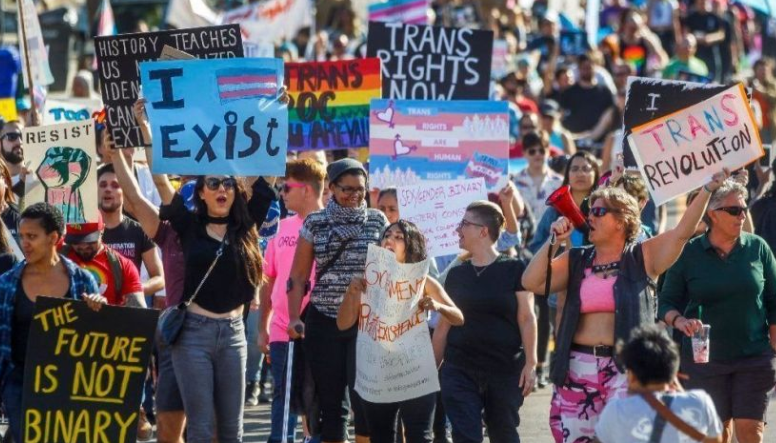Blog Post
The 2010s were the decade the culture wars exploded. What comes next?
By Jonathon Van Maren
As the autopsies of the decade roll out, it is hard not to marvel at how much has changed in ten short years. The panic over climate change has reached a crescendo that makes Al Gore look relaxed. The Arab Spring took down dictators in Tunisia, Egypt, Libya, and Yemen, and a devastating civil war began in Syria that helped give rise to ISIS and triggered a refugee crisis in Europe. Terrorists cut down civilians from the London Bridge to the Boston Marathon—although Osama bin Laden finally met his end at the hands of Seal Team Six in his Pakistani hideout. Instagram and other social media platforms transformed the way we communicate, Occupy Wall Street gave way to Black Lives Matter, and the #MeToo movement felled Harvey Weinstein, Bill O’Reilly, Charlie Rose, and Matt Lauer. The U.K. voted to leave the European Union, and Prime Minister Boris Johnson appears ready to make Brexit happen. We began the decade with Barack Obama in the White House. We ring it out with President Donald J. Trump.
And beyond all of that, the 2010s were the decade that the culture wars exploded.
It seems hard to believe now, but back in 2010 Barack Obama himself was still “evolving” on the issue of gay marriage—although his biographer, Dr. David Garrow, told me that Obama had simply hidden his actual position until he felt the country had caught up with him. In the meantime, he chipped away at the status quo, repealing “Don’t Ask, Don’t Tell” in December of 2010, ordering his Justice Department to stop defending the Defence of Marriage Act in February 2011, and finally announcing his support for gay marriage in May of 2012. At his second inaugural address on January 21, 2013, which I attended with a few friends, Obama announced that, “Our journey is not complete until our gay brothers and sisters are treated like anyone else under the law.” And on June 26, 2015 when the U.S. Supreme Court decided in Obergefell v. Hodges to legalize gay marriage (and nullify bans in 28 states), Obama had the White House lit up with rainbow lights.
A month earlier, support for gay marriage in the United States had surpassed 60% for the first time, and the LGBT movement moved from cautious demands to a cultural blitzkrieg. TIME magazine put a “transgender woman,” the newly-accepted term for a biological male identifying as female, on the cover in 2014, and by decade’s end nearly the entire media in every Western country had obediently begun to rewrite reality based on the demands of the trans community, constantly plugging bizarre coverage of “pregnant men” peppered with phrases like “her penis.” From a marginal force on the fringe of LGBT activism, the trans lobby morphed into an unbelievably dominant force in an incredibly short amount of time in only a handful of years, wielding the power to destroy careers overnight and demanding that yesterday’s radical feminists (and even J.K. Rowling) be driven from the progressive coalition for believing that men cannot become women. The patriarchy was back, and this time the powerful men were in drag.
The transgender moment was not encapsulated by TIME’s cover, but rather by Vanity Fair’s cover a year later, featuring all-American Olympian and reality show star Bruce Jenner as Caitlyn, posing in a contorted bustier with a brand-new set of breasts. This was followed up by a flurry of interviews in which once-serious journalists inquired gravely after the details of Jenner’s transition and newfound womanhood. Having by then completed his own transition, President Barack Obama tweeted at Jenner approvingly: “It takes courage to tell your story.” Five years later as the decade died, a biological male identifying as female was filing a lawsuit demanding he be permitted to join a female beauty contest, Drag Queen Storytime was a North America-wide phenomenon, and public schools were teaching gender fluidity to small children as a matter of course. The number of “trans children” promptly exploded. In ten years, the LGBT movement shifted from underdog to establishment.
Despite the extraordinary victories of the LGBT movement, the pro-life movement saw much success over the past ten years (in spite of Barack Obama’s attempts to assist his pro-choice allies in wherever he could.) Hillary Clinton’s loss was an enormous blow to the abortion industry, and the Trump Administration, despite the chaos that appears to frequently reign, has consistently worked to deliver for the pro-life movement, from judicial appointments to policy at the United Nations. Hundreds of laws passed on the state level have also contributed to the lowest abortion rate since Roe, and the abortion industry and their media allies have been commenting glumly on the losses of the decade. “The last decade was disastrous for abortion rights,” read BuzzFeed’s synopsis. “The downfall of Roe v. Wade started in 2010,” agreed Vox. The Economist headline: “Abortion rights in America face an uncertain future.” While sustaining heavy losses on one battlefield of the culture wars, conservatives held their ground on the essential issue of protecting pre-born life.
The next decade will be pivotal for Christians in the West. The LGBT movement is seeking to cement their power, hoping to retake the branches of American government and pass the Equality Act, which would permanently enshrine their dystopian vision of society into law (and could eradicate all pro-life laws overnight.) If they manage to complete their revolution, marginalization could morph into persecution in a very short amount of time. Writers like Rod Dreher are of the opinion that the battle for the culture has already been irretrievably lost, and that Christians should opt for a new Benedict Option to weather the Dark Age ahead. Others believe that Trump, Brexit, and other populist backlashes indicate the possibility of new electoral coalitions that might do to the progressive Left what Boris Johnson did to Jeremy Corbyn. The progressive war on biological reality, some say, is simply a bridge too far—now, finally, the people will stand up and say thus far and no further.
I’m not sure what the answer to that question is. Right now, we have a radical progressive movement successfully severing Western civilization from its roots, determined to centre society around the Sexual Revolution rather than the American Revolution. The same is true across the West, where the bedrock rights of freedom of speech, freedom of association, and freedom of religion are being curtailed in favor of the new rights demanded by those who seek to redefine what it means to be human. The last ten years have brought cultural changes that would have been unfathomable at the beginning of the decade, reminding us how swiftly things can shift. These progressives will not be satisfied until they have subjugated their opponents. In the next decade, we will discover whether they will achieve their goals.








